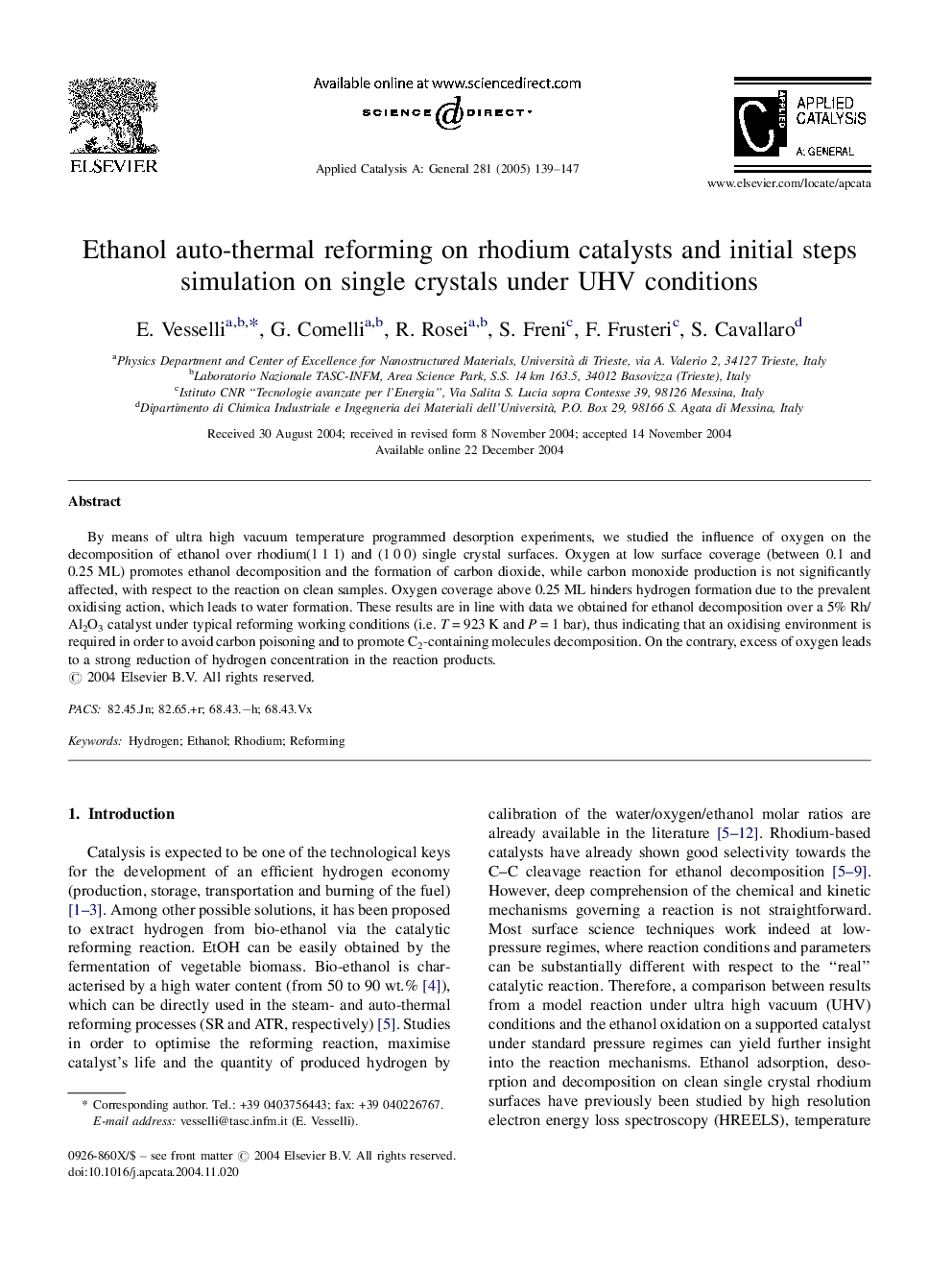| Article ID | Journal | Published Year | Pages | File Type |
|---|---|---|---|---|
| 9608091 | Applied Catalysis A: General | 2005 | 9 Pages |
Abstract
By means of ultra high vacuum temperature programmed desorption experiments, we studied the influence of oxygen on the decomposition of ethanol over rhodium(1Â 1Â 1) and (1Â 0Â 0) single crystal surfaces. Oxygen at low surface coverage (between 0.1 and 0.25 ML) promotes ethanol decomposition and the formation of carbon dioxide, while carbon monoxide production is not significantly affected, with respect to the reaction on clean samples. Oxygen coverage above 0.25 ML hinders hydrogen formation due to the prevalent oxidising action, which leads to water formation. These results are in line with data we obtained for ethanol decomposition over a 5% Rh/Al2O3 catalyst under typical reforming working conditions (i.e. TÂ =Â 923Â K and PÂ =Â 1Â bar), thus indicating that an oxidising environment is required in order to avoid carbon poisoning and to promote C2-containing molecules decomposition. On the contrary, excess of oxygen leads to a strong reduction of hydrogen concentration in the reaction products.
Related Topics
Physical Sciences and Engineering
Chemical Engineering
Catalysis
Authors
E. Vesselli, G. Comelli, R. Rosei, S. Freni, F. Frusteri, S. Cavallaro,
